
“In line with India’s ethos of ‘Vasudhaiva Kutumbakam’, Indian pharmaceuticals Industry is playing a leading role in the global market and have been working tirelessly to contribute towards greater good of mankind to ensure abundant availability of good quality pharmaceuticals of mass consumption at reasonable prices. India’s steadfast commitment to work with partner countries shows our dedication in creating vibrant relationships and deepening this collaboration further from just trade to welfare.” This was stated by Dr Mansukh Mandaviya, Union Minister for Health & Family Welfare and Chemicals & Fertilizers as he interacted with Heads of Foreign missions from almost 100 partner countries, on Pradhan Mantri Bharatiya Jan Aushadhi Pariyojana in presence of Union Minister of External Affairs, Dr. S Jaishankar at Sushma Swaraj Bhawan, here today.
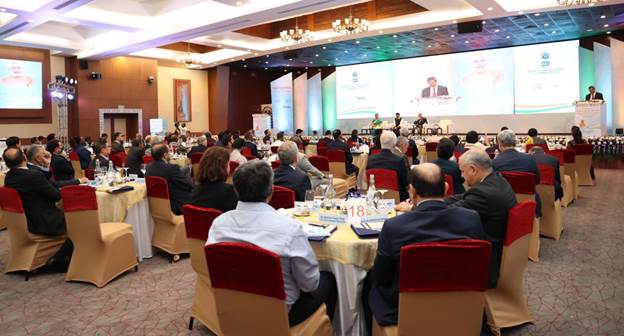
Speaking on the occasion, Dr. Mandaviya reinforced the need for improving sectors such as Health & Pharma across the world especially in the aftermath of COVID-19 pandemic. Leveraging strong presence of India across the globe in generics, Dr. Mandaviya said that “India is rightfully called the pharmacy of the world. With 50% exports and one of every five generic pills worldwide being produced in India, we contribute in a big way for making medicines affordable for people in many countries across the globe.” He invited countries to look at the best practices by India and voluntarily implement them in their countries as per their local needs. He further emphasized India’s goal that remains “to focus on improving equitability, inclusivity along with access and affordability of medicines and medical devices for our citizens and to the World.”
In resonance with the vision of the Prime Minister, various healthcare programs and initiatives have been taken since 2014. He said that “the government has strived to provide affordable healthcare through interventions such as cashless treatment, establishment of Health and Wellness Centers (AB-HWCs), and popularizing generic medicines through Jan Aushadhi Pariyojana”.
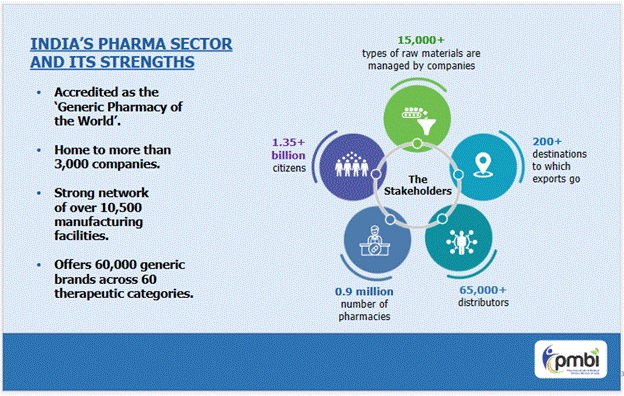
Reiterating the benefits of Jan Aushadhi Pariyojana, the Union Health Minister said that “this flagship program strives to provide quality medicines at an affordable rate to the common man especially the poor, priced 50%-80% less than that of the commercial market.” Along with these benefits, Dr. Mandaviya highlighted that “Jan Aushadhi Pariyojana is a source for entrepreneurs to start retail businesses, provides widespread benefit to citizens and required budgetary support is low for governments.”
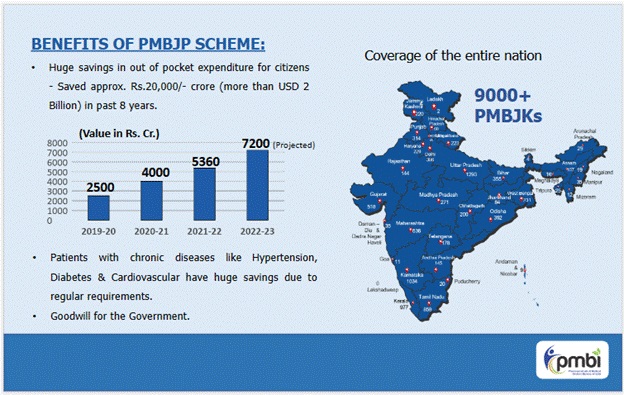
Reflecting on the benefits garnered from this program, Dr. Mandaviya elaborated on the possibility of this model being replicated in other countries. As a pilot, procurement of 50 fast moving medicines may be done by establishing linkages with Indian pharma exporters. Similar IT and supply chain systems, publicity strategies can be shared with other countries. He pointed out that countries, through similar intervention can provide their citizens access to affordable and quality generic drugs that will save them from import dependency on high-cost patented drugs, maximize welfare of their people, generate employment and bring economic benefit to households.
Highlighting about the health aspect in globalization, Dr. S Jaishankar, Union Minister of External Affairs stated that “Health cost is central to the core of the governance and prosperity. Even among developed countries, given the income disparity, the whole global debate on how to make health accessible has brought us together”. He noted that in this globalized world, “Triple A linkage” of Affordability, Accessibility and Availability needs to be focused upon. He was hopeful that global interdependence, inter-linkages can also provide solutions for everyone which was also witnessed during the pandemic period. With this, Dr. S. Jaishankar offered all the necessary support to partner countries to help them establish and implement public centric schemes akin to Jan Aushadhi Pariyojana in their countries.
Through a detailed presentation, the granular details of the scheme were showcased. Over 1759 medicines (40+ Major Therapeutic Groups) to 280 Surgical Equipment & Consumables are available at Jan Aushadhi kendras.
Number of outlets and the sales volume have increased by more than 100 times in past 8 years. On an average 1.2 million persons visit Jan Aushadhi outlets every day. The key success factors of PMBJP include quality assurance of products, efficient logistics, incentivizing the entrepreneurs, adequate product range, constant communication and awareness, savings to the citizens.
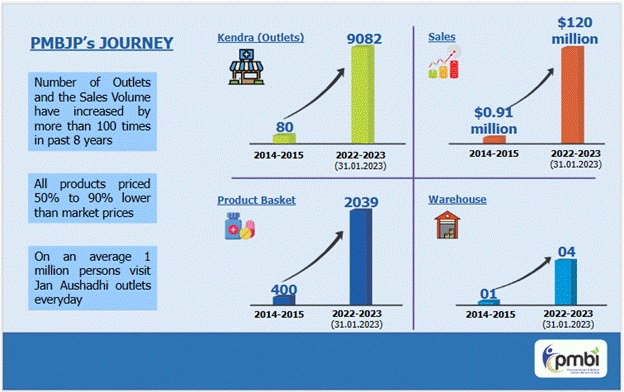
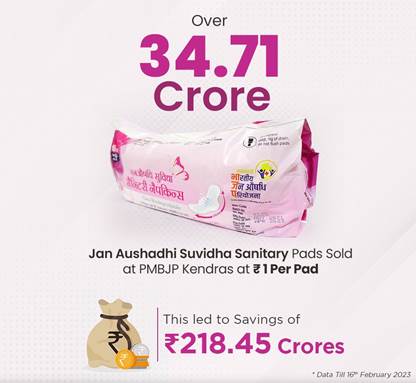
Jan Aushadhi Kendras has resulted in huge savings in out-of-pocket expenditure of beneficiaries, amounting to approximately Rs.20,000/- crore (more than USD 2 Billion) in past 8 years.
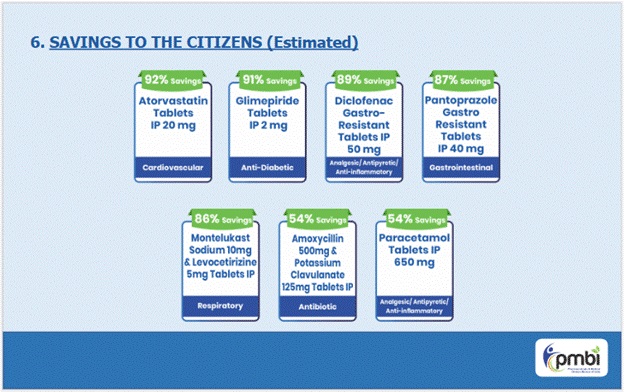
The Heads of Mission discussed ways and means of active collaboration for procurement, research, skill development, pharmaceutical production in their own countries. It was pointed out that there are 7 premier National Institutes of Pharmaceutical Education and Research. Interested countries could explore opportunities for institutional collaboration with NIPERs.
Ms. S Aparna, Secretary, Department of Pharmaceuticals, Shri Prabhat Kumar, Special Secretary, MEA along with senior officials of MoHFW and MEA were present at the interactive session.
***
MV
HFW/ HFM/ PMBJP conference/24Feb2023/2

